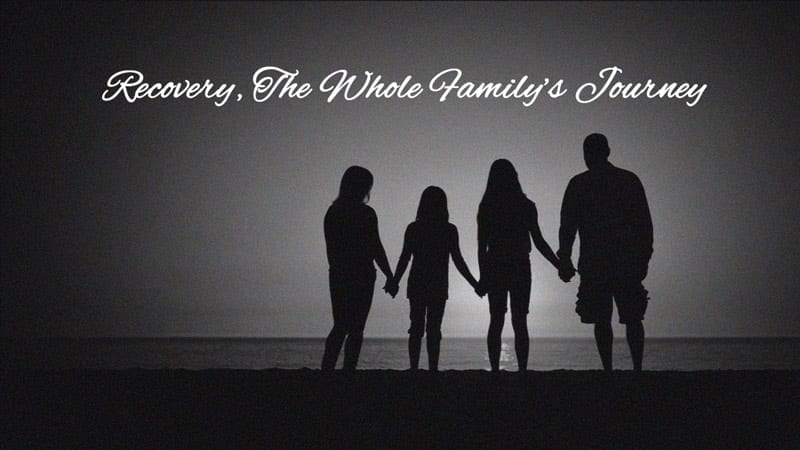Failure to Launch Part 4 – In a blog post from 2016 I wrote about a serious problem in our culture, which I call “failure to launch” (FTL) I use this term in a non-judgmental way to describe the frustration and concern parents and other family members feel when a young person seems unable to move forward and achieve significant milestones of life expected for someone that age. This article, Part 4 in our series on FTL, examines the problem of what to do when a young adult at home is stuck in life and refuses to get help.
A Dilemma for Parents of Young Adults
As parents, we are hardwired by nature to care for our children. But what happens to those caregiving instincts when our children are not children anymore? For many parents it is difficult, if not impossible, to turn off the caring instinct, no matter what the “child’s” age is.
Young people over the age of 18 may be adults in the eyes of the law. But as most parents of older children know, few 18-year olds in the United States are able to take care of themselves in a way we consider fully adult. In the past few decades we have watched the rise a new stage in life between adolescence and adulthood, which might be called emerging adulthood. This is a stage of life between the ages of 18 and 25, but sometimes even later, when young people struggle to transition away from the dependency of adolescence to the responsibilities and self-sufficiency of young adulthood.
During this period of emerging adulthood, young people want to self-determine and make their own decisions. But it’s not quite as simple as that. Despite the push towards independence, part of them longs for the sheltered life of adolescence, and they frequently rely on others – usually parents – to help pay the bills, look out for their health, and bail them out when there’s a problem.
Many parents of today’s young adults have been in the frustrating position of receiving overdue tuition bills from educational institutions that won’t tell them anything about their children’s academic progress; or being unable to resolve an unreimbursed insurance claim because the company won’t talk to them about a family member over 18 years. The frustration only increases when the young person has a mental health problem to complicate matters.
When I first started writing about “failure to launch” in 2016 there was a rush of cries for help from parents who were ready to give up hope that their live-at-home sons and daughters would ever achieve independence. I learned about FTL from Yale psychologist, Dr. Eli Lebowitz, who has written an article “Failure to Launch”: Shaping Intervention for Highly Dependent Adult Children. The term was popularized in the title of a truly awful movie, which portrays the problem in a way that is highly misleading and frivolous. In the real-world version of FTL, as Dr. Lebowitz makes clear, mental health issues are frequently at the root of the problem. Depression, anxiety, and other conditions can make it exceptionally hard for a young person to complete the typical life tasks of emerging adulthood, such as:
- obtaining higher education or specialized training
- finding a job and launching a career
- developing a sense of identity
- learning to self-regulate
- forming intimate relationships with others outside the family
- moving out of the family home
Every week, concerned parents contact our Resource Specialist seeking help for an adult child who struggles with one or more of these issues. Many parents worry that potential mental health issues are behind their child’s FTL. Unfortunately, they cannot force an over-18 “adult” to get help, and even if their son or daughter is already seeing a mental health professional, parents frequently feel that they are cut out of the conversation, with no one to hear their side of the story or offer support.
Failure to Launch is not just a problem for the young adult stuck at home. It is a problem that affects the entire family. Therefore…
Focus on the Part of the Problem You Can Change
The most important thing you can do in an FTL situation is to stop thinking of the problem as belonging solely to the young adult and see it for what it really is, a problem in the family system.
A change in any part of the family system results in changes to the whole. But there is only one part of the system you can change for sure: YOU. By focusing on changing your own thoughts and behavior, you take control into your own hands and can actually have an impact on the bigger problem in your family. Some ways that parents dealing with an FTL situation can changes themselves are discussed below.
7 Things You Can Do When Your Young Adult with FTL Refuses to Get Help
Put on your own oxygen mask first – Anyone who has flown a commercial flight has heard this familiar expression: “In the event of an emergency, please put on your oxygen mask before assisting others.” Having a young adult living with you at home can be stressful for everyone. If that young adult has a mental illness, stress levels can rise off the charts. Your young adult may not be willing to get help for his or her mental health problems. But that doesn’t have to stop you from seeking guidance and support from a qualified professional. Once your own stress levels are under control and you feel supported in your efforts, you will feel more equipped to take on the problems of a loved who continues struggling.
Remember your “young adult” is still not a full adult – Growing up takes longer than it used to (read the reasons why here). Your son or daughter who lives at home may be over 18, but you are still the grown-up in the house. Despite your young adult’s wish for autonomy, there may be times when you have to take matters in your own hands and be directive. In most cases, your instincts as a parent are correct. If you think it’s not healthy for your unemployed 24-year old to be staying up past 2 AM and sleeping in past noon, you are absolutely right and it is okay for you to make a rule about this. Don’t back off just to avoid an unpleasant confrontation.
Open up a dialogue – Much of the uncomfortable feelings and conflict in an FTL situation result from poor communication. Emerging adults with FTL, especially males, can be challenged in this area. This leaves it up to parents to take the lead. Conflicts may arise when parents feel their young adult has abused their generosity, violated boundaries of communal living, or is not meeting expectations. For you, these conflicts involve normal adult expectations that shouldn’t have to be explained at every turn. But many emerging adults, especially those with mental health issues, need to have these things spelled out for them. Often, that means holding frequent family meetings and writing down the rules and expectations (for more information and tips on boundaries, rules, and expectations for emerging adults, see my article Failure to Launch Part 2: Setting Expectations for Young Adults at Home).
Stop accommodating – One way parents contribute to FTL is by being parents. That’s right – too much parenting can be part of the problem. It is instinctive for parents to rush to the side of a child in distress. That instinct doesn’t go away just because the child is 22, has grown a beard, and is back in your basement after dropping out of school – especially if there are mental health concerns. Despite what your instincts are telling you, you must resist the urge to take care of him. Keeping track of his medical appointments, cooking his meals, and doing his laundry may seem like good ways of ensuring that he is healthy, fed, and groomed, but they are not sustainable unless you plan on still being around to do these things for him when he’s 62 or older. Accommodations of this sort only serve to delay the inevitable, propping him up in an FTL lifestyle and allowing him to put-off getting the care he really needs from a qualified professional.
Allow your young adult to fail – Fear of failing is one of the leading causes of failure to launch. That sounds paradoxical, but it’s true. Anxiety about an uncertain world, that offers so many chances to fail, can cause a fragile young adult to retreat to the security of the family nest. Under the right circumstances, failure teaches us better ways of doing things and helps build character. However, a feeling of constant failure without success can lead to loss of self-confidence, discouragement, and even depression. The challenge for emerging adults with FTL is in finding the right balance between the two. You can help by encouraging them to take risks and helping them process the experience when failure happens, as it often does. Just as FTL is not really failure, making mistakes is part of life – one that presents us with opportunities to learn and grow. The only real failure is never trying.
Take a lesson from the pros – Many of the basic skills that therapists and rehabilitation counselors use in cognitive therapy (such as cognitive behavioral therapy, or CBT) can be learned and practiced by the average layperson. Cognitive therapies teach patients skills for managing negative emotions and behaviors – skills, which you can also use as a parent. By consulting a CBT-trained therapist, you can get the support you need while learning skills that can help you manage the situation with your young adult at home. You can also use a professional counselor or therapist as a sounding board to run through different scenarios involving your young adult and to help craft a plan for managing the situation at home.
Keep it positive and loving – You can be sure that most emerging adults stuck in FTL feel bad about their situation. They are not at home without a job and no life plan just because they are thoughtless and lazy. Their situation calls for compassion. However, young adults with FTL need caring, not taking care of. There is a fine line between the two, which you can navigate by expressing your love and concern, while encouraging them to step out of their comfort zones and try new things.
The first step in dealing with a problem of FTL is to recognize that it is really not a failure at all, but in most cases is a response to the challenges of growing up, which for some emerging adults can feel like an impossible task. The task is much harder if the young person has mental health issues for which he or she is reluctant to seek help.
Even if that is the case, there is still much within your power as parent that you can do to help a child who is over 18 and struggling. This article has mentioned several possibilities, and our Resource Specialists are available to answer your questions and help you connect with resources for help in your community.
But remember that the most important resource at your disposal is your love and concern for your child who is striving to be a young adult.
Read the Entire Series
- Silver Hill Hospital: My Family’s 35-Year History with a National Leader in Quality Mental Health Care - February 7, 2023
- Connecticut Mother Who Lost a Son to Overdose Shares Her Story and Hosts Wilton Fundraiser to Benefit Laurel House - November 9, 2022
- Laurel House Offers $10,000 Racial Equity Scholarship for a Black or Hispanic Student Pursuing a Master’s of Social Work Degree - June 8, 2022











I have a 23 yr old son who I think has “ failure to launch” problems and he won’t take responsibility’s and makes everything my fault . I think he has Aspergers but have never had a proper diagnosis but I feel he isn’t fully adult . It’s putting a high level stress in my house and has put extreme pressure on my self and my hubby and other adult child . He refuses to see a gp , or councellor or even go for walks just to clear he’s mind of any anxiety or stress. He struggles to sleep and even though he has a pc , he’s not as bad as he was a young teenager .. he never goes out , he’s always at home , but I just don’t know what to do .. it’s putting our relationship as mother and son in deep trouble and I’m scared that we will a,ways be stick with him and he’s problems .. I want help
Hi Hayley.
Blaming the parents is very common in Failure to Launch (FTL). Unfortunately, it adds to the stress level of everyone in the house and is not productive for the young adult.
I will ask one of our Resources Specialists to contact you privately to offer assistance. They deal with a lot of FTL situations in the home and should be able to offer advice and support for your situation.
– Jay
I have a 26 year old son who came home from college 4 years ago. He has severe anxiety and depression. He has basically been in his room 90% of the time since coming home. He tried many medications, all of which he says do not work so he is on no medication now, He has tried a few therapists and the one he sees now really does not seem to be doing anything and has changed him from every week to every two weeks. I don’t think he is honest with his therapist when he sees him so how can he really help him. He refuses any other help because he says nothing will work. He does not communicate with us, only through text messages at times if we text him. He stays in his room all day and comes out only at night to get food when everyone has gone to sleep. When I walk by his closed room door day after day it kills me. I have contacted local services, even had the crises team come in once because he said at one point he had been thinking about suicide. They came in and talked with him and felt that he was not a threat to himself or anyone and told him if they get called again they would take him out to a hospital. The problem with that is that they will evaluate him for a day or two and send him home. That will not change his situation at all and he will not take medication. We as parents are so confused as to what to do at this point. I have some local resource information that was left for me by the crises team. I was thinking of looking into some type of group housing. I need to get him out of the house or someone to come in and get him out of the house. I just don’t know what to do. I would love to hear your thoughts. Thank you.
My 34 Yr. old stepson has a photogenic memory and is consistently reading (on the internet), he can rattle off tons of useless trivia information. He has had 6-7 head injuries (concussions), most without seeking medical treatment. He has been living with his father and I for nearly two years. He has attempted suicide a couple times prior to living with us but has also spent time homeless and short periods of time in and out of jail. He has not been able to get or to keep a job all of his young adult life. No matter how many cars, apartments he has been helped to get, he loses them, one way or another so he has proven unable to care for himself or to make reasonable decisions. He has fantasy of self employment which will quickly make him a wealthy person with a lavish lifestyle, yet he appears to be unable to hang up his clothes, manage money or most normal every day activities as an adult with structure and order. He is in his room, which is a pig pen mess in every direction, and he’s either on the internet, smoking cigars, eating or sleeping. He is often up all night, snacking or smoking. His cognitive thinking skills are hard pressed to discover, his ability to make reasonable life choices, unsuccessful. He clearly needs therapy, supervision and possibly, medical treatment for his past concussion issues, including terrible reoccurring headaches.
I am tired, frustrated and feel completely out of solutions. He refuses to listen to wise counsel and will not seek therapy or help for his issues, (anxiety, depression and unrealistic fantasy self employment get rich quick plans, which will require someone else besides him to fund). I do not believe in his present condition that any improvement can come while living with us, if anything, he is being enabled to be completely dependent on us, financially and otherwise. Just trying to find a solution and see what our options are. I need a miracle or I may need a mental health intervention soon!
Mary,
You mention that your stepson is not able to get or keep a job and has not been able to hold on to cars or apartments. A person at 34 who is still not able to do those things may not be capable of supporting himself independently. It may be time to start looking into other options for his care, such as public supportive housing programs.
I will ask one of our Resource Specialists to contact you in private to offer information on how to start that process if it seems appropriate. Hang in there, Mary! There are services available that can help your stepson to live more independently.
Thanks for contacting us with your concerns.
Jay
I am in the same boat as the person with the 23 year old. Two years ago, he dropped out of college promising that he would work or continue his education in our home state. Two years later, despite having a car to drive and a license, has made zero effort to do anything and spends 90 percent of his time in his room. He knows he needs help and even consented to see a therapist once, then totally stood the therapist up! After another blowup about it all, he promised he would try his own “exposure therapy.” Nope. All he does is stay up online all night, sleep all day and play videogames. It is soul crushingly bad. He does his own laundry. He feeds the cats at night. He usually washes his dishes. But that is it. He acts cheerful enough, but if I mention the words, “job” or “drive” or “skills” and he goes to the dark side. I am desperate. This dynamic is poisoning the family.
Toni,
It sounds like your son is not able to take steps to be more independent on his own. Seeing a therapist would probably help, but not if he refuses to go. You may have to take charge of the situation by turning off internet access and taking away the car until he agrees to seek help.
I know that can be a lot harder than it sounds, but it may be your only option. I will ask one of our Resource Specialists to contact you privately to offer advice on how to handle it.
Jay
My sister is almost 30. She graduated from college and has a decent enough job (salary = approximately $35k/year). She moved back home after college and has never paid for rent or groceries. Every time she has an “emergency“ (e.g., she gets a speeding ticket), she expects my parents to cover the cost – and they do. My parents both claim to be tired of this arrangement, but neither one wants to argue with her. She regularly argues with them until they are exhausted by her and give in just to avoid an argument. It’s causing a lot of financial and emotional strain within the family; but I don’t know how to help my parents to stand up for themselves or motivate my sister to take responsibility for her life. Any recommendations?
Frustrated Sister,
It sounds like your parents are taking the path of least resistance with your sister. That may be easier for now, but your parents won’t be able to keep it up forever and in the long term it doesn’t help your sister.
Our Resource Specialist Denise will reach out to you in private to offer some suggestions on what to do in this situation.
Thank you for reading the blog and commenting.
Jay
Our 25 year old adult son was **** off (by me) from the educational trust money, left by his grandmother. I found out (by snooping) that he has withdrawn and/or flunked out half of his classes.
He lies constantly, and is finally in therapy. However, he is NOT telling them he is a video game addict.
Also, his father (who I realize is a narcissist) wants to be “friends” not a parent, so he does not lay the same rules as I.
Is it wrong to leave a message with the receptionist, since he lives in our home, to let them know, his issues are with VIDEO GAMES. He sold them on ADHD and they prescribed Straterra. Now he plays video games like a maniac.
They are medicating him without all the information.
He is sweaty all the time and I read that is a sign of “overdosing” on Straterra.
He cannot be trusted to bring this up or the fact that he missed another online deadline for a paper due, that was a FINAL. The teacher ended up giving him a 6 day extension, but I can never see his report card.
I am so frustrated because I encourage him all the time.
The lies hurt worse than his resistance to learning. He goes through the motions, but he’s not invested.
He changed his major several times because I want him to do something he is passionate about, so he’s happy.
Thanks for any feedback on how we get the therapist and psychiatrist to realize, he has not told them everything.
Kristine,
It sounds like a frustrating situation with your son, and potentially harmful if he’s not taking his medication in an appropriate way.
I will ask one of our Resource Specialists to contact you in private to offer suggestions on communicating these concerns to the therapist and psychiatrist.
Jay
Our son was highly successful in high school, in spite of having ADHD (and not able to take stimulant meds). We realize now that it was because we were there to provide support and structure (i.e.; wake him up, help him with task management, etc.) He flunked out of his first 2 attempts at college (after discovering girls and drugs) and at 23 we realized he was using opiods.
This began a 9 year struggle with back and forth drug rehabs, recovery, relapse (and therefore, no real employment success)…. with us continuing to provide financial support and him assuring us he desperately wanted to stay sober and get his college degree online. After a recent period of 6 mos of sobriety, he was in a sober-living community (out of state) and ready to get a job and start his online program, but he broke program rules and was kicked out. Within a few weeks, he was using. Then COVID struck simultaneously to that happening, and we decided to “pull the plug” on the continued financial support, etc. – and we have had him here living with us thinking we could get him the help he needs here locally.
It is now obvious he is depressed and his self esteem is very low…. we are ready to require he work with a therapist who will engage us as well – but with no sober community here, the drug issue is at the forefront of our immediate concerns. Our son claims that once he has a job, a car and is enrolled in the online program, he won’t want to use – lots of “magical thinking” going on and not much getting done toward any of those goals.
Please connect us with a “resource specialist” you would recommend – we have a lot of “issues” at play here and need someone who is up for a challenge!
Thank you!
Cynthia,
This has been another unfortunate consequence of the coronavirus pandemic… More families are having to step in to provide support and care for loved ones with mental health and addiction issues.
Our Resource Specialist, Denise, says she is up for the challenge and will reach out privately to offer some suggestions.
Jay
My 24 year old still lives at home with us, he works 13 hour days . He pays for nothing at the house. He does nothing outside of work, no social interaction with anyone at all. He is having delusional thoughts that someone is out to get him, and blaming a particular person for all his mishaps. He has low self esteem , plays video games when not at work, and refuses to go and talk to anyone. He is on a medication for anxiety but obviously it is not working. He has lost alot of weight, he use to be very overweight in his teen years, but now is very thin. He will sit around talk to himself, smile and act weird and when i say anything to him he gets angry. it is truly affecting the dynamics of our family , especially since he works for my husband , which he says he gets crazy acting , talking crazy and he has had enough. I would love some suggestions on how to help him and us.